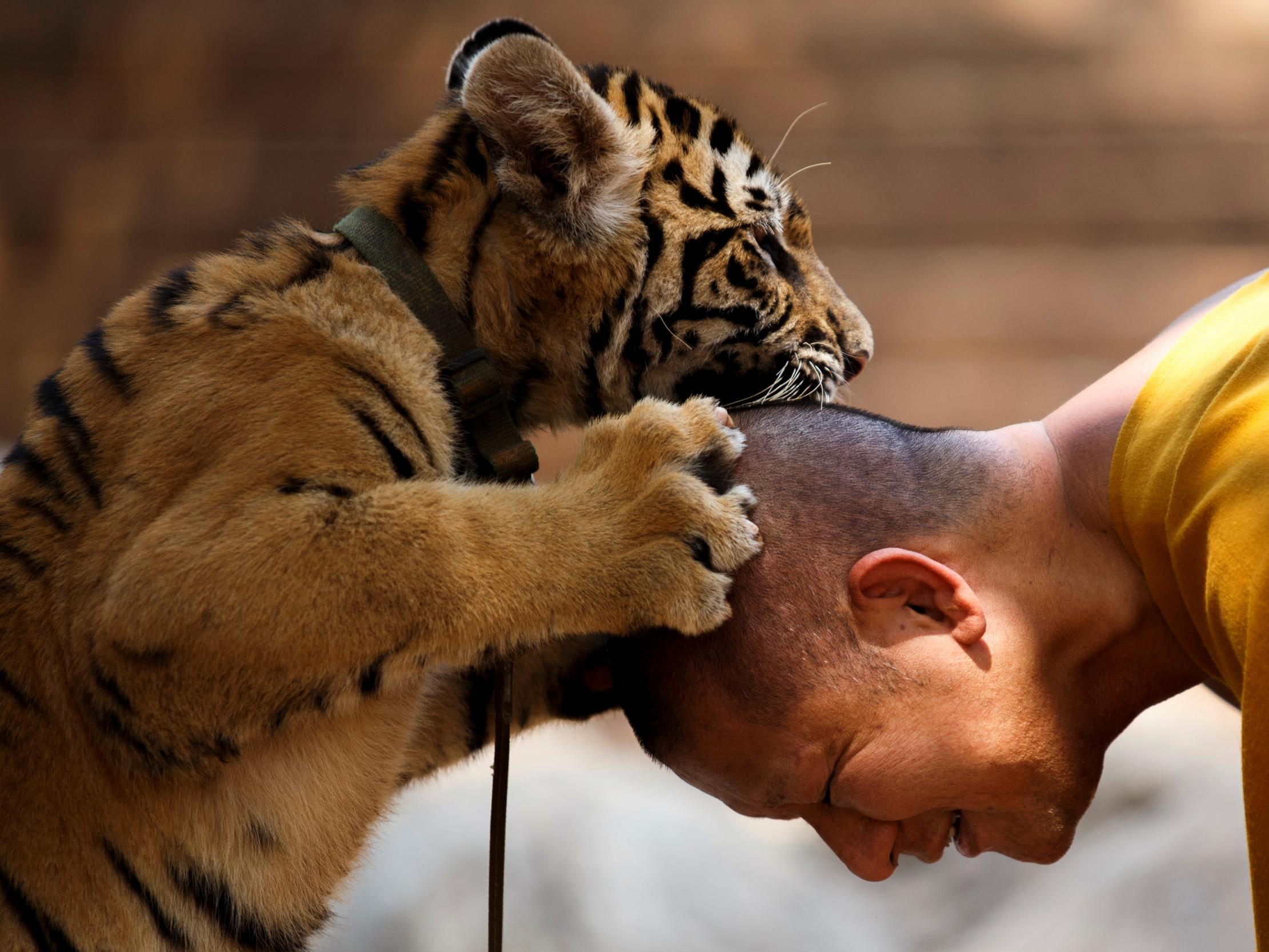Over half of the tigers rescued from Thailand tourist attraction have died
Viral disease rampant as animals left with ‘no immune system’

Your support helps us to tell the story
From reproductive rights to climate change to Big Tech, The Independent is on the ground when the story is developing. Whether it's investigating the financials of Elon Musk's pro-Trump PAC or producing our latest documentary, 'The A Word', which shines a light on the American women fighting for reproductive rights, we know how important it is to parse out the facts from the messaging.
At such a critical moment in US history, we need reporters on the ground. Your donation allows us to keep sending journalists to speak to both sides of the story.
The Independent is trusted by Americans across the entire political spectrum. And unlike many other quality news outlets, we choose not to lock Americans out of our reporting and analysis with paywalls. We believe quality journalism should be available to everyone, paid for by those who can afford it.
Your support makes all the difference.More than half of the almost 150 tigers rescued from a tourist attraction in Thailand have reportedly died in captivity in the last three years.
The Wat Pha Luang Ta Bua Yanasampanno temple west of Bangkok promoted itself as a wildlife sanctuary. It charged admission to visitors who would take photos with the animals and bottle feed their cubs.
Three years ago, 147 tigers were removed for the facility by the Thai government, follwoing allegations that they were being illegally bred.
Tourists had also reported that the animals seemed drugged.
After it emerged the rescued creatures had died, a senior official from Thailand’s department of national parks, wildlife and plant conservation said their immune systems had been weakened by inbreeding.
Prakit Vongsrivattanakul said they were said the tigers were particularly susceptible to the canine distemper virus.
"When we took the tigers in, we noted that they had no immune system due to inbreeding," he told state-owned broadcaster MCOT. "We treated them as symptoms came up."
Mr,Vongsrivattanakul, the department's deputy director-general, did not give a figure for the number of tigers to have.
However, local media reports suggested 87 of the 147 rescued creatures had died.
Thai government officials could not be reached for comment.
While removing the tigers from the temple, Thai state officials reported finding the bodies of 40 dead tiger cubs in a freezer.
They also discovered 20 glass jars containing baby tigers and tiger organs during a raid of the site.
A monk allegedly attempted to flee the site in a truck carrying more than 700 vials of tiger skin, as well as tiger teeth hidden in a suitcase.
"I am quite shocked," Teunchai Noochdumrong, director of the government's wildlife conservation office, said at the time. "We all have heard concerns and allegations about this temple. I would never have thought they would be so blatant."
Additional reporting by Reuters.
Join our commenting forum
Join thought-provoking conversations, follow other Independent readers and see their replies
Comments